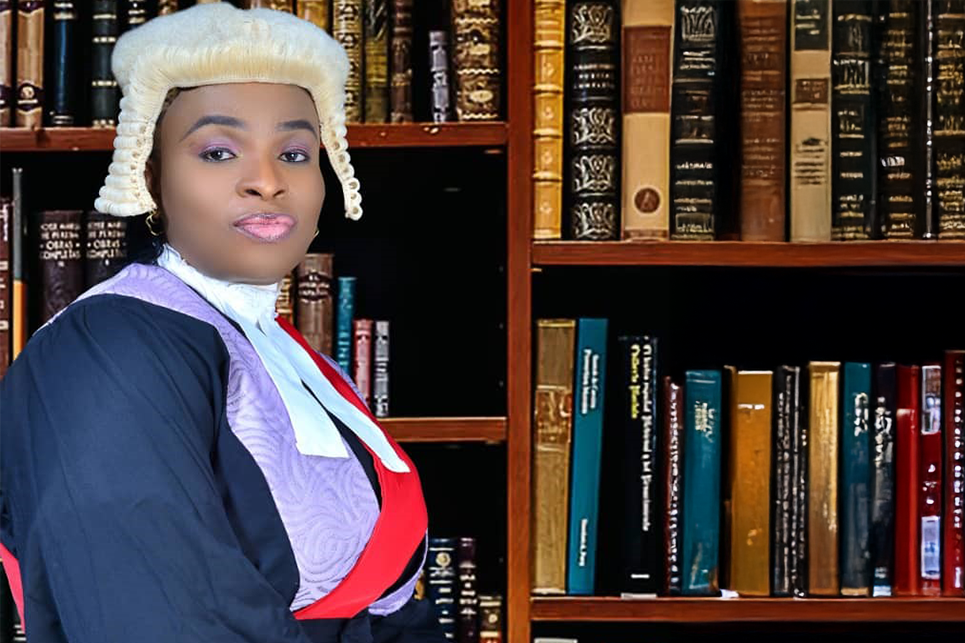Good practices in promoting gender equality in the administration of justice in Bolivia
Justice Karem Gallardo is a Judge of the Plurinational Constitutional Court of Bolivia and the President of the Gender Committee of the Judiciary.
______________________________
The ongoing efforts in the Bolivian judiciary on gender mainstreaming aim to contribute to the effective administration of justice in accordance with the existing ethical standards and judicial integrity. To this end, the Gender Committee of the Judiciary and the Plurinational Constitutional Court have been advocating and continue to promote substantive equality between men and women and the implementation of measures to combat inequalities in the administration of justice. We are already seeing the positive impact of the measures taken, and through this opinion piece we would like to share with you some of the good practices identified.
The first fundamental step towards gender equality in the justice system was the establishment of the Gender Committee within and for the Judiciary in 2013. The Gender Committee is composed of female magistrates from the highest courts of Bolivia, including the Judicial Council. Since its creation, the Gender Committee has become a consultative body in Bolivia for the articulation and promotion of positive actions to safeguard women's rights. A concrete example of its work and one of its main achievements has been the creation of the Institutional Policy on Gender Equality for the Judiciary of Bolivia, which is based on the experiences of other Latin American countries and promotes gender equality in the administration of justice.
Another great advancement that we have achieved through the work of the Gender Committee has been the adoption of the Protocol for Judging with a Gender Perspective. This Protocol has been approved by all the highest courts of the Bolivian Judiciary and the Judicial Council. It aims to align the administration of justice in Bolivia with the international legal framework, such as the international conventions and treaties ratified by Bolivia, as well as to ensure compliance with the right of equity reflected in the Constitution.
Nevertheless, there is still a long way to go in the Bolivian Judiciary and in many other judiciaries to achieve full gender equality. With a view to raising awareness about this issue among members of the judiciary, a series of events and activities have been organized by the National School of the Judiciary and the Plurinational Constitutional Court to date in cooperation with various international cooperation agencies. These included several rounds of national competitions on how to judge with a gender perspective and various thematic webinars to promote dialogue between judges and the general public. As a good practice identified, there has been an increasing number of male judges and magistrates participating in these activities as applicants and participants, thus demonstrating the growing interest of all actors involved in the administration of justice to learn about gender and the impact of gender-related issues on judicial corruption.
Finally, we believe that the work of the Gender Committee should be shared broadly with the civil society and the community it serves. That is why the Gender Committee created the Justice and Gender Observatory as a technical body analyzing the gender-related information collected by the Judiciary and the Plurinational Constitutional Court and addressing, among others, gender-based violence. Since its creation, the Observatory has carried out research, produced reports, communicated the different results to the community through specialized seminars and workshops with civil society and academia, and has organized specialized training for judicial and administrative authorities.
One of the key lessons learned is that judicial integrity and the inclusion of a gender perspective in the administration of justice cannot be achieved by the Gender Committee alone. Rather, effective coordination between all relevant institutions is necessary. For this reason, the Gender Committee is working in alliance with the Plurinational Constitutional Tribunal, numerous universities, the Ombudsman's Office, the Public Prosecutor's Office and the Ministry of Justice.


